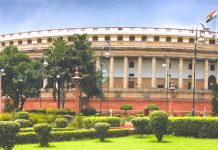This article is written by Bhumika Dandona from School of Law, Sushant University (erstwhile Ansal University), Gurgaon. In this article, she deals with the various aspects of the Gujarat Land Grabbing (Prohibition) Act, 2020, its background and the challenges that are posed by the Act in respect of some constitutional principles.
Table of Contents
Introduction
Illegal activities exist in every country. To deal with these unpleasant elements of society effectively, the introduction of appropriate measures becomes necessary. But as said, they need to be impactful in their functioning. A mere establishment of the same is not enough. Careful study of the subject matter by the experts and formulating the rules will ensure minimum undesirable consequences. If the regulating steps so devised are somewhat faulty in the first place, things can take a turn for even worse. In simple words, an already intense situation can convert into something even more dangerous. Thus, irrelevancy can lead to a diminishing quality of regulation. This article analyses the recently passed body of rules and regulations relating to land grabbing in Gujarat concerning these very aspects.
The practice of land grabbing
Before getting on to the legislation under consideration, it is necessary to familiarise ourselves with what led to its advent in the legal system. Prevalent since the colonial inter-tribal disputes, land grabbing refers to the practice of acquiring the land by application of force upon its actual owners. It is one of the most common problems faced by the world, especially the developing countries. Usually, numerous such nations have somewhat weak governing institutions, which highly contributes to the growth of illegalities within it. Thus, coercive hold on the acres gives rise to the violation of human rights in the course of its operation. It deprives people of income, livelihood, and food security, principally the poorest ones. It exposes them to violence and threat as well, at the hands of the powerful. Apart from that, land grabbing also causes an infringement upon legal rights, including property rights. Although this practice generally takes place in the agricultural and real estate sectors, it is no stranger to other industries. Such activities do not see one’s profession. Thus, land grabbing is a source of income for those who would rather indulge in forbidden occupations than be honest in their ways of living.
Gujarat Land Grabbing (Prohibition) Act, 2020: a brief background
The State Government of Gujarat had been witnessing increasing land grabbing activities in the state for the past few years. Cities like Baroda and Ahmedabad stumbled upon rampant cases of illegal encroachment of lands (especially agricultural lands) and still do to date. Attempts by several lawbreaking persons or groups of persons to forcefully or deceptively obtain landholdings in various places have come to the government’s notice. These individuals use fictitious details and documents to enter into land transfers with the help of ‘corrupted’ property dealers. It leads to an immense amount of trouble for the owners. One must note that other than farmers, even the governmental authorities, charitable organizations, religious associations, etc., come under the category of owners.
One of the main factors that gave rise to such situations in the state is the increasing prices of properties. The economic development of Gujarat in the last ten years caused the prices of lands to shoot sky-high. Inflated prices made it an attractive asset for the target by criminals. They crack deals with the agents to con the owners and drown them in irrecoverable losses.
Hence, given the above-specified circumstances, the government decided to bring in a legal formulation that will curb such activities to a great extent. In this respect, the government introduced the Gujarat Land Grabbing (Prohibition) Bill, 2020, in the State Legislative Assembly. On approval by the Assembly, the Bill became the Gujarat Land Grabbing (Prohibition) Act, 2020, in September 2020, though it came into effect from an earlier date of 29th August 2020.
Important provisions of the Act
Following are some of the most crucial provisions incorporated in the Act so passed:
Definitions to remember
- Section-2(d) defines land grabbers as those persons who commit the crime of land grabbing. Successors-in-interest also forms a part of such people.
- Section-2(e) of the Act defines land grabbing as an activity performed by the land grabbers as an attempt to occupy any land with or without the use of force, threat, intimidation and deceit, over which they don’t have ownership, title, or physical possession. For reference, the sub-clause states that such lands also include those belonging to the government, local authorities, Public Sector Undertakings, religious or charitable organizations.
Prohibition on land grabbing and punishment
- Section 3, read along with Section 4, deems land grabbing prohibited and unlawful in all forms. Any activity arising out of or connected with the same shall be a punishable offence under the legislation.
- Any person who continues to engage in this occupation shall be guilty of the wrongdoing of land grabbing. Actions in violation of these provisions shall invite imprisonment for not less than ten years. This period of punishment may extend up to fourteen years.
Powers of delegated legislation to the state government
The Act delegates powers of legislation to the state government, which are as follows:-
- Section 7 of the Act empowers the State Government to constitute Special Courts for coping with land grabbing. The government may constitute Special Courts, in concurrence with the Chief Justice of Gujarat High Court, by notification in the official gazette. The decision of the State Government shall be final in the question of jurisdiction of such courts. It may also appoint additional judges for this purpose.
- Also, the government may appoint a Public Prosecutor for the Special Court as per Section 8. It can make rules to bring into effect the purposes of the Act, according to Section 16. The provision calls for the publication of the notification by the government in this respect in the official gazette. Further, these rules are to lie before the State Legislature within thirty days of their making. The government must make all the modifications that the members may suggest on this behalf.
- According to Section 18, the government may remove any such difficulties obstructing the implementation of the concerned provisions. Any order so made in this respect shall lie before the State Legislature.
Powers conferred on the Special Courts
The legislation also grants various powers to the Special Courts under its ambit, which are mentioned below:-
- According to Section 9, on an appeal made by any person or an officer so permitted, the Special Court may acknowledge or adjudicate every case concerning the alleged land grabbing. It may adopt any procedure to decide whether the crime is that of civil or criminal liability. However, it shouldn’t go against the principles of natural justice in exercising its powers. There must not be a violation of other provisions of this Act. All the findings of the Court shall be in use as evidence of the offence during the proceedings.
- Section-10 grants Special Courts the powers similar to that of the Civil Courts and Courts of Session. They shall exercise the rules of the Code of Civil Procedure, 1908 and the Code of Criminal Procedure, 1973, as the situation may require. Finally, the decision of the Court shall be final under all circumstances.
Burden of proof, record of proof and investigation
- Under Section 11, the burden of proving that the defendant has not committed the alleged crime shall solely lie upon himself. Unless proved wrong, he shall be guilty of the same.
- The police shall not record any information relating to the offence committed. As per Section 12, it has to take place with the prior permission of the District Collector. If the police officers are working either under the Deputy Superintendent of Police, or the Assistant Commissioner, they can’t conduct any such investigations.
Consistency of provisions with other laws
- As per Section 15, all the provisions of this Act should be consistent with those made by the Parliament. There should not be any inconsistency with the decree or order passed by the courts and tribunals as well. Contradicting provisions will immediately lose their effect and be struck down.
Challenges to the constitutionality of the Act
On a thorough reading of the Act, one can conclude that some specific provisions infringe the fundamental rights guaranteed by the Indian Constitution. Following are some of the critical points in respect of the same:-
- The provisions in the Act are too arbitrary. Going by them, owners of either the governmental or private land can become lawbreakers just by a signature. By signature, it means the creators of such impugned laws. All owners can then be subject to stringent punishment, such as imprisonment for not less than fourteen years. Thus, this form of measure violates one’s right to life and personal liberty, as defined under Article-21 of the Constitution.
- Various legal practitioners have criticised the State Government, stating that there are already relevant legislations to deal with land grabbing in the state. Some of them include the Gujarat Land Revenue Code, 1879, the Gujarat Provincial Municipal Corporations Act, 1949, etc. There was no need for a separate Act in the first place since the existing ones are enough for curbing land grabbing activities.
- The Act has a retrospective effect. It applies to all the land grabbing cases, irrespective of having taken place recently or decades back. Thus, it has failed to differentiate between the various timelines in the view of the crime. It would be troublesome because those involved in older transactions may not have the required documents today, causing unfair situations in their favour. The Act has also failed to take note of the ground realities at the village level. The people residing in rural areas may have got their houses constructed many decades ago, without any lawful title. In such circumstances, if they get into any trouble for land grabbing, without any fault of theirs, chances are they would succumb to it. Since most of the villagers are low-income earners, it would be difficult for them to afford competent legal help, which would further add to their problems.
- Lastly, it deems any act against the governmental or municipal lands an offence and does not provide any exemption from this provision.
Conclusion
The Act introduced to bring the activities of land grabbing in Gujarat into control stipulates stringent measures for the same. Since the inception of the Act, the state has come across several cases of land grabbing. Around 647 in number, they are undergoing investigation, all reported within a short span of thirty-five days. While some involve criminal commotions against governmental lands, others relate to property owned by ordinary people. In less than five months after its operation began, two individuals approached the Gujarat High Court earlier this year, attacking the constitutionality of the Act.
In their petition, they contended that it grants the State Government uncontrolled legislative powers. Both of them further stated that the Act has a retrospective effect and thus, violates the fundamental right under Article-21 of the Indian Constitution. This Article provides that there can be no arrest for an offence committed at a time when a law was not in force. Presently, there has been no revert from the High Court in this respect yet. But most of the people, including some politicians, have already made up their mind that the legislation is inadequate. Thus, so to say, there seems to be a need for reviewing the law once again.
References
- https://prsindia.org/files/bills_acts/bills_states/gujarat/2020/Bill%2019%20of%202020%20Gujarat.pdf
- https://housing.com/news/gujarat-land-grabbing-and-prohibition-bill/
- https://realty.economictimes.indiatimes.com/news/regulatory/gujarat-enforces-land-grabbing-prohibition-act-2020/79763222
- https://www.indiatoday.in/india-today-insight/story/a-harsh-new-land-grabbing-law-in-gujarat-1758802-2021-01-13
- https://www.researchgate.net/profile/Logan-Cochrane/publication/307561825_Land_Grabbing/links/5a172e380f7e9be37f958462/Land-Grabbing.pdf?origin=publication_detail
- https://m.timesofindia.com/city/ahmedabad/5k
- -hectares-of-pastoral-land-grabbed/articleshow/79786216.cms
- https://www.google.co.in/amp/s/indianexpress.com/article/cities/ahmedabad/constitutional-validity-of-land-grabbing-act-challenged-in-hc-7157758/lite/
- https://www.counterview.net/2021/03/ciminalising-tool-created-name-gujarat.html?m=1
LawSikho has created a telegram group for exchanging legal knowledge, referrals and various opportunities. You can click on this link and join:
https://t.me/joinchat/J_0YrBa4IBSHdpuTfQO_sA
Follow us on Instagram and subscribe to our YouTube channel for more amazing legal content.
 Serato DJ Crack 2025Serato DJ PRO Crack
Serato DJ Crack 2025Serato DJ PRO Crack











 Allow notifications
Allow notifications


